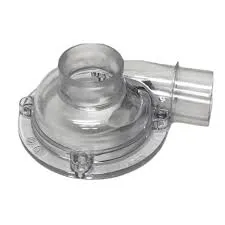Mobile:+86-311-808-126-83
Email:info@ydcastings.com
anchor type impeller
Understanding Anchor Type Impellers Their Design and Applications
Impellers play a crucial role in various fluid mixing and pumping applications across numerous industries. Among these, anchor type impellers stand out as a vital component in processes requiring high viscosity fluid handling, often utilized in chemical, pharmaceutical, and food industries. This article explores the design, functionality, and applications of anchor type impellers, while also highlighting their significance in enhancing process efficiency.
What is an Anchor Type Impeller?
An anchor type impeller is a specialized mixing device characterized by its unique design, which resembles an anchor used in maritime applications. This impeller typically features two primary components the blades and a central shaft. The blades are designed to extend outward in a manner that allows them to scrape the vessel's walls and effectively facilitate the movement of high-viscosity fluids. This scraping motion ensures that the material remains well-mixed, minimizing the risk of settling or uneven consistency, which are common issues in highly viscous substances.
Design Features of Anchor Type Impellers
The design of anchor type impellers is tailored to suit specific mixing requirements
. Their key features include1. Blade Shape and Size The blades of anchor impellers are broad and flat, allowing for maximum contact with the fluid while minimizing turbulence. This design is particularly beneficial when mixing non-Newtonian fluids, which behave differently from water and can be challenging to keep homogeneous.
2. Central Shaft The impeller is mounted on a central shaft that allows it to rotate within the mixing vessel. The configuration of the shaft can vary to optimize the mixing outcome depending on the application.
3. Spacing The anchor impeller often has customized spacing from the vessel walls, which enhances its ability to scrape and mix effectively. The spacing can be adjusted based on the viscosity of the fluid being processed.
anchor type impeller

4. Material Construction Anchor type impellers are generally constructed from stainless steel or other durable materials that can withstand the harsh environment of chemical processing, ensuring longevity and reliability.
Applications of Anchor Type Impellers
Anchor type impellers are employed in numerous applications where efficient mixing of high-viscosity fluids is required. Key industries benefiting from these impellers include
1. Pharmaceutical Industry In the pharmaceutical sector, anchor type impellers are critical for the production of ointments, gels, and creams, where consistent texture and homogeneity are essential for product efficacy and safety.
2. Food Industry The food processing industry utilizes anchor impellers in the production of sauces, dressings, and other viscous food products. The ability to maintain a uniform product consistency is vital for quality assurance and consumer satisfaction.
3. Chemical Processing The chemical industry often involves the blending of thick pastes and slurries. Anchor impellers assist in achieving a thorough mixing process, which can affect chemical reactions, resulting in improved product yield and consistency.
4. Cosmetics In the cosmetics industry, anchor impellers are used to mix high-viscosity formulations, ensuring that active ingredients are evenly distributed throughout the product, thus enhancing performance.
Conclusion
Anchor type impellers serve as an indispensable tool in various processes requiring uniform mixing of high-viscosity fluids. Their unique design and functionality make them suitable for applications in multiple industries, including pharmaceuticals, food production, chemical processing, and cosmetics. As industries continue to evolve and demand more effective mixing solutions, anchor type impellers will undoubtedly remain an integral part of enhancing process efficiency and product quality. Understanding their design, features, and applications can help engineers and operators select the right impeller system to meet specific process needs, ultimately leading to improved operational outcomes.
-
Why Should You Invest in Superior Pump Castings for Your Equipment?NewsJun.09,2025
-
Unlock Performance Potential with Stainless Impellers and Aluminum End CapsNewsJun.09,2025
-
Revolutionize Your Machinery with Superior Cast Iron and Aluminum ComponentsNewsJun.09,2025
-
Revolutionize Fluid Dynamics with Premium Pump ComponentsNewsJun.09,2025
-
Optimizing Industrial Systems with Essential Valve ComponentsNewsJun.09,2025
-
Elevate Grid Efficiency with High-Precision Power CastingsNewsJun.09,2025











